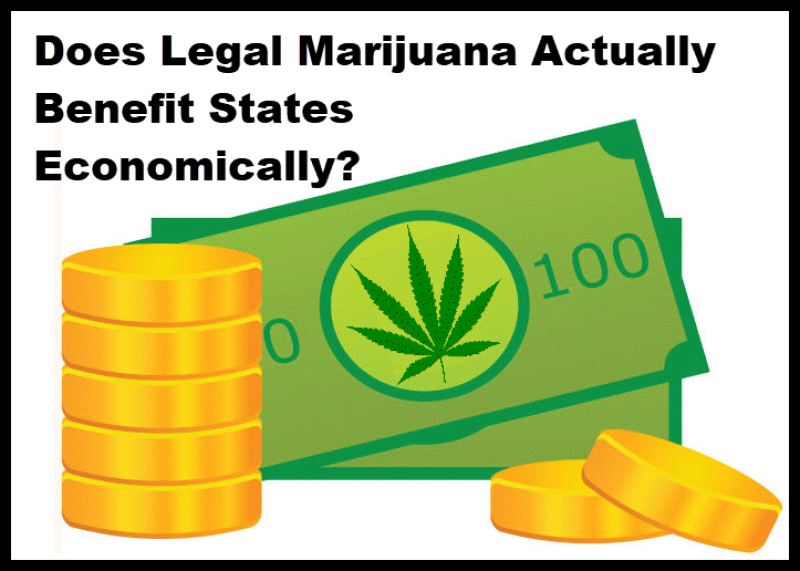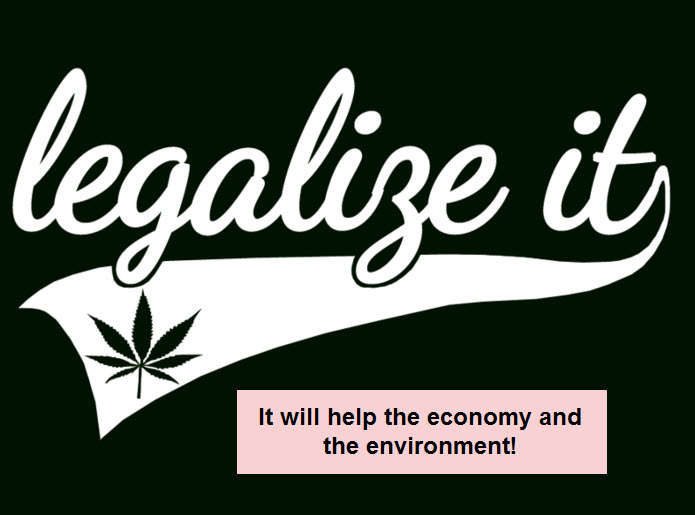Does Legal Marijuana Actually Benefit States Economically?
The big question everyone should be asking when it comes to legal cannabis is whether the profits outweigh the costs. According to a claim of a recent study, when factoring in social and healthcare costs, taxpayers spend roughly $4.5 dollars per every dollar spent on legal marijuana.
On the other hand, a study from 2017 found that for every dollar spent on marijuana, there is $2.4 of economic activity within the purchase. With such conflicting conclusions, it’s hard to know exactly what is what when it comes to the cost/profit margins of legal cannabis.
To start right off the bat, the $4.5 dollars per dollar-spent estimate is hyper-inflated. It’s blaming all sorts of societal issues on marijuana alone. According to the report by the Centennial Institute, they claim that the state spends more on hospitalizations, high-school dropouts, road accidents because of marijuana.
The cost is based on potential future scenarios that isn’t based in fact but suppositions. They believe that ‘if’ a kid tries marijuana [which no one is advocating for by the way], and that the action of smoking marijuana somehow convinced the kid to drop out of school and I don’t know, pursuit the path of a street side juggler; that the future losses would be attributed to the legalization of cannabis. Under this reasoning they created the projected cost of regulation to the taxpayer.
However, they ignore the fact that the cannabis industry employs thousands of people, create tax revenue and won’t leave consumers with a criminal record that would impede them from getting access to things like credit-lines, higher paying jobs and so forth
Why are the data all over the place?
This is another good question. Why is it that one report suggests that $2.2 of economic activity occurs for every $1 spent on legal weed, and the other have such inflated projections? Truth be told, it comes down to perspective.
The Centennial Institute is a Christian institution. Their conservative puritanical bias would obviously attribute higher social costs on the ‘potentials’ of cannabis. While legal cannabis does cost the tax payer something, we cannot attribute all societal ills on the industry alone.
What would motivate a kid to drop out of school? Studies find that factors such as family stability, socio-economic status and so forth has a far greater impact on drop-out rates than any given drug. This isn’t to say that some people do drop out because they become fixated on smoking pot, but this isn’t the norm.
In fact, if you look at the statistics within the state, you’d notice that fewer teens are reporting use. At the very least it has remained statistically unchanged. However, depending from which moral perspective you view marijuana, you can interpret the data differently.
The fact of the matter is that legal cannabis hasn’t increased fatal road collisions compared to before and after legalization. Of course, marijuana is present at a higher frequency in the blood streams of Coloradans, but this doesn’t mean that they are high. Cannabis can stay in your system for up to 90 days.
Even if it does cost more, it should still be legal
Let’s say, for the sake of argument that it does cost more to regulate legal marijuana than leaving it in the black market. Even then, it should still be legal. The fact of the matter is that cannabis is an issue not of economy, but of human rights.
Within a free society there should be no oversight on your consumption habits. People would go in a smoldering rage if you would limit the amount of burgers they can order from restaurants based on their weight. While the example might seem ridiculous, the fact of the matter is that obesity and heart disease cost the taxpayer far more than legal marijuana does.
If the argument of the Centennial Institute is, “look at how much we’re spending on legal weed, therefore it should be illegal/or taxed more”, then they should be on board with Federal Weight Watcher programs that limit your consumption of junk food based on how overweight you are.
The cost of giving fat people the option to snarf down burgers like there is no tomorrow is not enough reason to prohibit their freedom of choice in the matter. Similarly, you cannot deny people cannabis because it ‘costs’ the taxpayer.
Additionally, the previous system honed in on persecuting minorities, creating a wealth disparity for those who were convicted of a federal/state crime.
The cost of prohibition far outweighs the cost of regulation. Thus, if we were to reassess their study, they should rather compare how much it cost the taxpayer in maintaining prohibition versus legalization.
It would be important to factor in the similar estimates of loss under prohibition as consumption rates remained roughly within the same margins post legalization. On top of this, what would be the potential loss of people who can’t gain access to higher education because of a criminal record.
The bottom line here folks is that while cannabis isn’t perfect, it still is far more effective than the previous model in all factors, including health, economy and safety.
How Does Legal Marijuana Actually Benefit States Economically? from CannabisNet on Vimeo.
OTHER STORIES YOU MAY ENJOY...
CANNABIS COCONUT OIL IS THE KEY, READ THIS, CLICK HERE.







